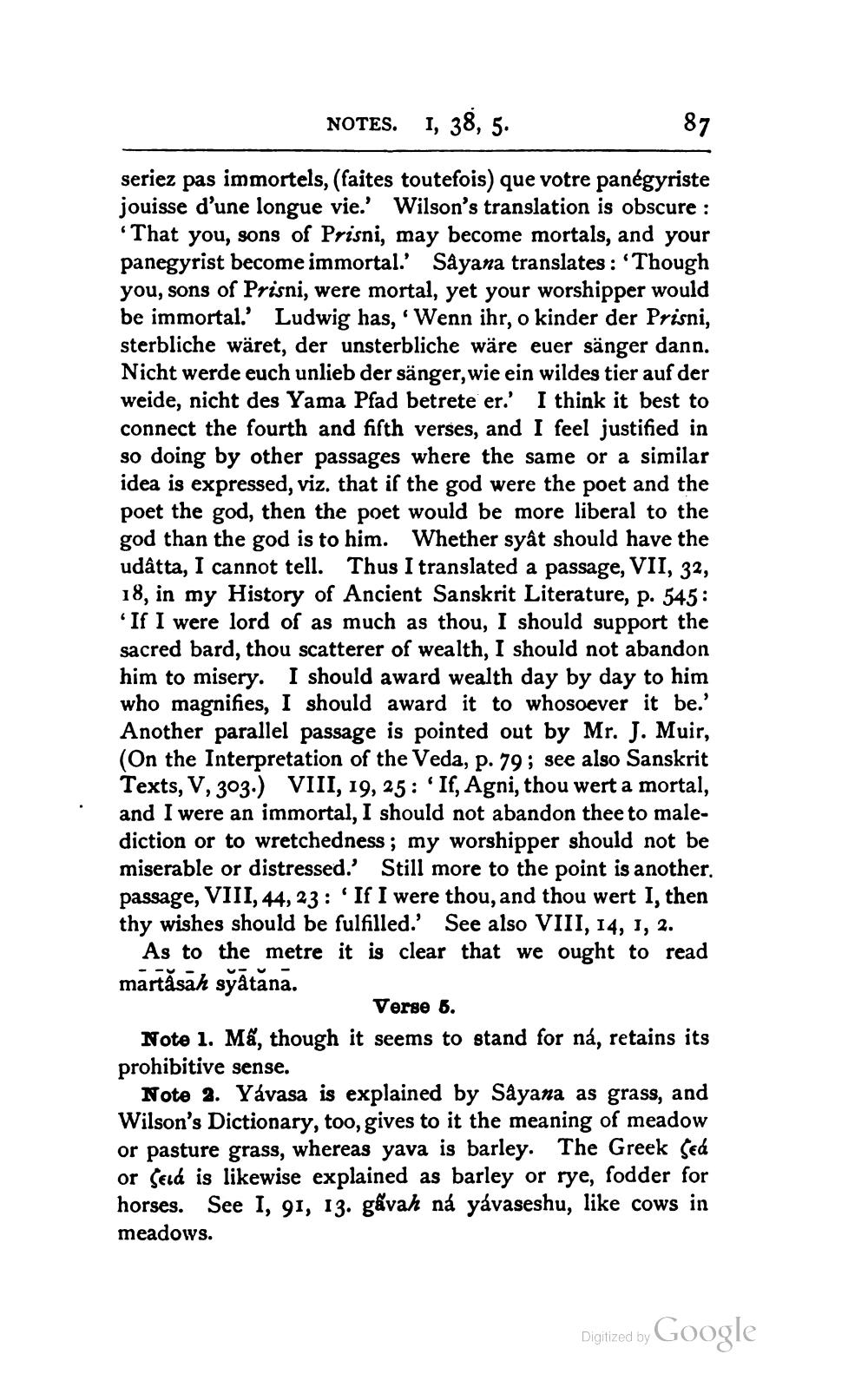________________
NOTES. I, 38, 5.
seriez pas immortels, (faites toutefois) que votre panegyriste jouisse d'une longue vie.' Wilson's translation is obscure :
That you, sons of Prisni, may become mortals, and your panegyrist become immortal.' Sayana translates : 'Though you, sons of Prisni, were mortal, yet your worshipper would be immortal.' Ludwig has, 'Wenn ihr, o kinder der Prisni, sterbliche wäret, der unsterbliche wäre euer sänger dann. Nicht werde euch unlieb der sänger, wie ein wildes tier auf der weide, nicht des Yama Pfad betrete er.' I think it best to connect the fourth and fifth verses, and I feel justified in so doing by other passages where the same or a similar idea is expressed, viz. that if the god were the poet and the poet the god, then the poet would be more liberal to the god than the god is to him. Whether syât should have the udâtta, I cannot tell. Thus I translated a passage, VII, 32, 18, in my History of Ancient Sanskrit Literature, p. 545: 'If I were lord of as much as thou, I should support the sacred bard, thou scatterer of wealth, I should not abandon him to misery. I should award wealth day by day to him who magnifies, I should award it to whosoever it be.' Another parallel passage is pointed out by Mr. J. Muir, (On the Interpretation of the Veda, p. 79; see also Sanskrit Texts, V, 303.) VIII, 19, 25: 'If, Agni, thou wert a mortal, and I were an immortal, I should not abandon thee to malediction or to wretchedness; my worshipper should not be miserable or distressed.' Still more to the point is another. passage, VIII, 44, 23: 'If I were thou, and thou wert I, then thy wishes should be fulfilled.' See also VIII, 14, 1, 2
As to the metre it is clear that we ought to read martásah syātana.
Verse 3. Note 1. Mã, though it seems to stand for ná, retains its prohibitive sense.
Note 2. Yávasa is explained by Sayana as grass, and Wilson's Dictionary, too, gives to it the meaning of meadow or pasture grass, whereas yava is barley. The Greek Sed or Celá is likewise explained as barley or rye, fodder for horses. See I, 91, 13. gấvah ná yávaseshu, like cows in meadows.
Digitized by
Digized by Google




